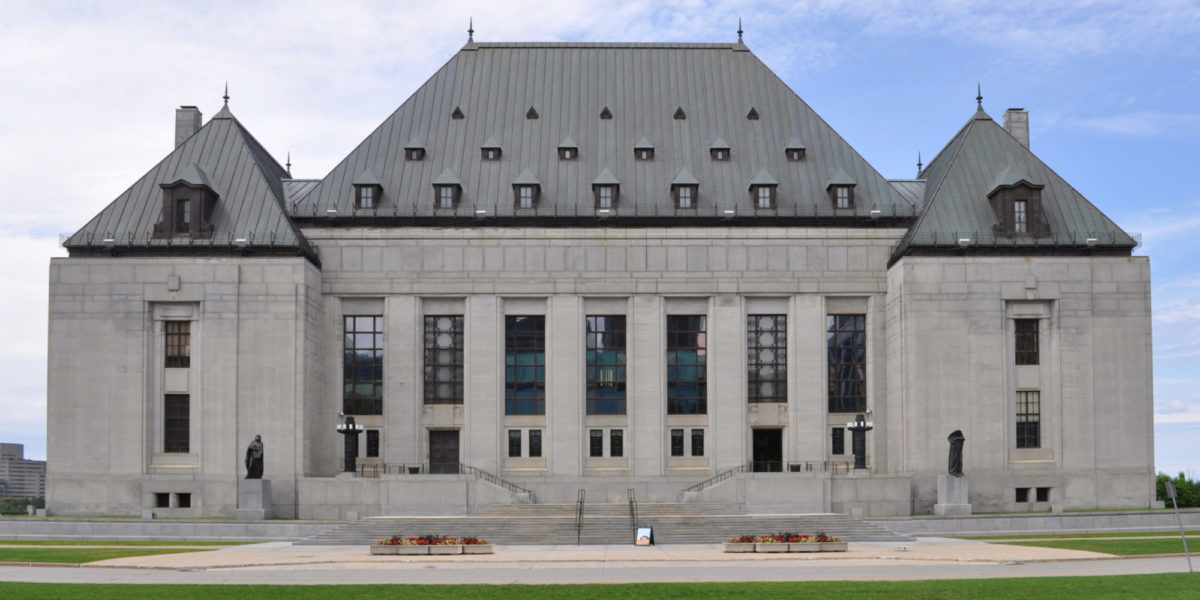Last week, Canada’s highest court held two days of hearings in relation to an ongoing case that challenges the constitutionality of the Protection of Communities and Exploited Persons Act (PCEPA).
The act criminalizes purchasing of sexual services and gaining a material benefit from the sale of another’s sexual services. Appellants of the case argue that PCEPA violates a sex workers section seven Charter rights to liberty and security of the person.
Groups who have mobilized against PCEPA include the Supporting Women’s Alternatives Network (SWAN) and the B.C. Civil Liberties Association. These groups say PCEPA still criminalizes sex workers and forces them into unsafe work conditions.
Concertation des luttes contre l’exploitation sexuelle (CLES), a Quebec organization against sexual exploitation, said they hope PCEPA survives this court challenge because it criminalizes pimps and sex buyers while immunizing sex workers.
“Canada adopted PCEPA in recognition of the fact that prostitution is violence and an obstacle to true equality between men and women,” said Jennie-Laure Sully, a community organizer at CLES.
Organizers with sex-worker led groups say it is harmful to view sex work as inherently exploitative.
“Arguments that sex work is inherently exploitative not only go against evidence, they reinforce assumptions and stereotypes that construct racialized sex workers as snapshots; people without a voice, without dimension and in need of saving,” said Kelly Go, program manager at SWAN. “These stereotypes increase physical violence against sex workers and render them disposable and deportable by the state in the first place. It’s important to understand migrant sex work in the context of labour rights and international labour migration.”
However, Sully and CLES maintain that PCEPA criminalizes pimps and sex buyers. Sully said CLES has not heard of any cases of women being charged for selling their own sex acts since the law was passed in 2014.
“We celebrate the 10-year anniversary of the law because we see that it has changed the power dynamic in the sex industry and that we are moving towards better protection for women and girls,” Sully wrote in an email to rabble.ca
Crystal Laderas, communications manager at SWAN Vancouver, said PCEPA does not translate to better protection for sex workers because it criminalizes those who do support work within the sex industry, For example, the law criminalizing third parties in sex work can affect receptionists, drivers, security staff and other workers.
“Anti-sex work opponents are the biggest cheerleaders of PCEPA despite a decade of these laws putting workers at greater risk of violence and exploitation,” Laderas said. “It’s disappointing to see organizations that willfully ignore evidence and have a clear moral or religious bias against sex work, being granted intervenor status in this case. Meanwhile, sex workers and organizations that support migrant sex workers, including the Migrant Workers Alliance for Change, have been excluded.”
Addressing sex workers’ needs through a labour rights lens has been a demand from many organizations. In 2019, MoveUp became the first known union in Canada to publicly declare its support for the decriminalization of sex work. The union wrote on its website that labour must support all workers.
“Sex work is work,” the union wrote. “Sex workers want rights, not rescue.”
In an academic article published in 2021 by Social Sciences, an international peer-reviewed journal, researchers concluded that sex work and exploitation related to it comes from the exploitative relationships that exist between many workers and employers.
Thaddeus Blanchette, Ana Paula Da Silva, and Gustavo Camargo, authors of the article, wrote that labour relations can be exploitative because a worker has to sell a large chunk of their day to whoever can buy it.
“It seems to us that the only way to properly reform prostitution law is via the same means which labor laws in general have been reformed in the west: through the political inclusion of self-organized sex workers at the decision-making table,” the authors wrote.
Editor’s Note 2024-11-21: SWAN’s full name has been corrected to Supporting Women’s Alternatives Network. A previous version of this article incorrectly named the organization as the Sex Worker’s Action Network. rabble regrets the error.



